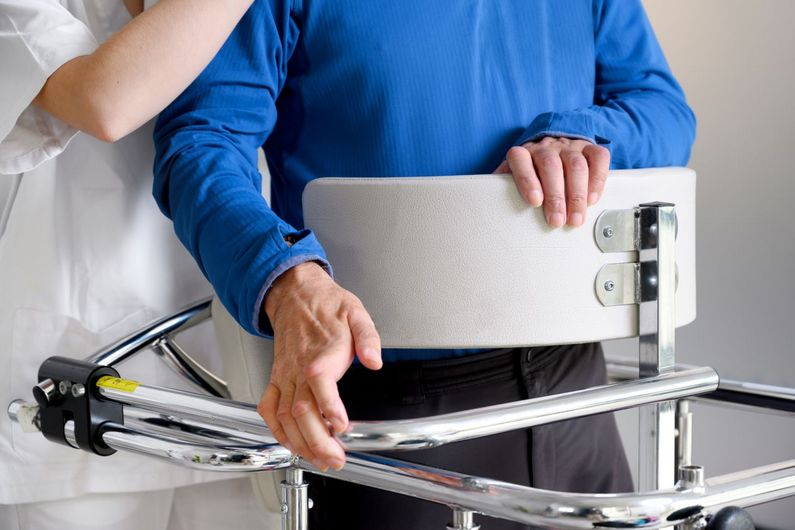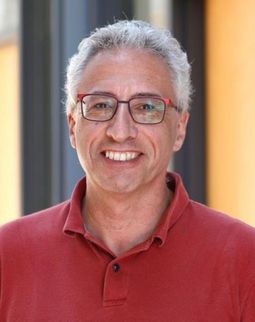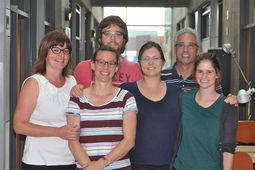Promising new treatment for ALS goes to clinical trials
- UdeMNouvelles
04/04/2022
- Mylène Tremblay
After 12 years of research, Dr. Richard Robitaille is hopeful that we’ll soon have a treatment to help people with amyotrophic lateral sclerosis (ALS) regain mobility.
A new clinical trial is set to start soon, thanks to a $1-million grant from the American ALS Association announced just before Christmas. “I’m still in shock! For me, this grant is recognition of years of hard work,” said Robitaille, a full professor in the Department of Neurosciences in the University of Montreal’s Faculty of Medicine. “Now we will be able to run clinical trials on patients with ALS and ultimately use what we learn to help others suffering from the disease.”
Amyotrophic lateral sclerosis (ALS), also known as Lou Gehrig’s disease, is a progressive neurodegenerative condition. It is “a terrible disease, a death sentence” that destroys motor neurons, the nerve cells that control our muscles. When communication with the muscles is lost, movement becomes impossible. There is currently no effective treatment to stop the deterioration.
In his lab, Robitaille and his team of a dozen students and research professionals, including Elsa Tremblay, Dr. Danielle Arbour, Dr. Éric Martineau and Joanne Vallée, came up with an innovative new approach: target neuromuscular junctions in order to maintain the essential connections between neurons and muscles. This restores muscle function, prevents muscle mass loss, and improves locomotion and survival in those suffering from ALS.
“Our study is the first to specifically target the neuromuscular junctions,” explained Robitaille. “We have shown that ALS prevents glial cells from helping to repair nerve synapses and thereby supporting healthy neuron functioning. This loss of nerve supply, or denervation of neuromuscular junctions, is one of the earliest pathological events in ALS. Our treatment targets these cells in order to restore their properties, or at least stabilize them. This enables people suffering from ALS to maintain their mobility, autonomy and sense of self-worth.”
Our treatment targets these cells in order to restore their properties, or at least stabilize them. This enables people suffering from ALS to maintain their mobility, autonomy and sense of self-worth. – Richard Robitaille, Professor in the Department of Neurosciences in the Faculty of Medicine
Preclinical trials on an animal model have proven the beneficial effects of this approach and showed the treatment had few side effects.
Speeding up the research process
The purpose of the $1-million grant from the ALS Association’s Clinical Trial Awards Program is to stimulate the development of treatments for ALS. It basically accelerates the process, enabling the team to run clinical trials on a pool of 30 adults being followed at the ALS Clinic of the Montreal Neurological Institute-Hospital (known as the Neuro).
While the clinical trial will be led by Robitaille, his lab will draw on the expertise of an international clinical team composed of Dr. Angela Genge at the Neuro, Dr. Jonathan Glass at Emory University in Atlanta, and Dr. Sandrine Da Cruz, an expert in molecular mechanisms at Vlaams Instituut voor Biotechnologie (VIB) in Brussels.
The recruitment of ALS patients is scheduled to begin in late 2022 and extend over several months. The clinical trial itself will take several years to complete. While not wanting to give false hope, Robitaille is upbeat about the trial. “The preclinical data justifies going ahead with clinical trials, but we can’t get over-optimistic,” he cautioned. “Now the challenge is to bring the trial to successful completion. We hope to see positive effects that will help people living with ALS, possibly as early as 2024.”















